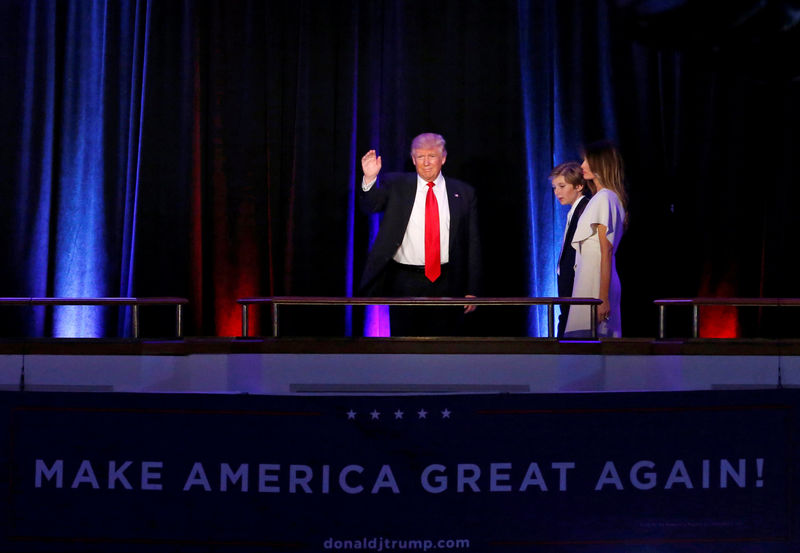By Lisandra Paraguassu
BRASILIA (Reuters) - Brazil's government on Wednesday congratulated U.S. President-elect Donald Trump on his victory but faced the delicate task of rowing back comments from its foreign minister who had expressed fear that a Trump presidency would be a "nightmare."
Brazil's currency weakened by nearly 1.8 percent in morning trade due to risk aversion and uncertainty over economic policy following Trump's victory.
During the U.S. presidential campaign, Brazilian government officials had openly preferred Democratic nominee Hillary Clinton over Trump, viewing him as unpredictable and opposed to freer trade.
However, on Wednesday Temer sent a message to Trump expressing confidence they could work together to expand cooperation between their nations. "I wish you much success in the government of the United States," he added.
Temer sees boosting trade with the United States and drawing U.S. investment as key to lifting Brazil out of recession. Trump has opposed the Trans-Pacific Partnership trade deal and favours raising tariffs on Chinese goods and major changes to the NAFTA pact with Mexico and Canada to protect U.S. jobs.
"The American people have decided," Temer said in a radio interview. "All we can do is raise our hats and congratulate."
There was no immediate comment from Foreign Minister Jose Serra who had labelled the possibility of a Trump presidency a "nightmare" and urged Americans to vote for Clinton in a newspaper interview in August.
Serra had added at the time: "Do nightmares, at times, come true? They do, but I prefer not to think about this."
Trump has worried Latin Americans with his views on immigration and vows to expel illegal immigrants and build a wall on the U.S.-Mexican border
But a Foreign Ministry official told Reuters that Serra's criticism of Trump could make it hard to advance a trade agenda with the incoming administration.
"It put us in a delicate situation and could bury closer commercial ties," said a senior ministry official who asked to remain unnamed due to the sensitivity of the matter.

"This will be a complication, besides the fact that Trump does not like trade accords," he told Reuters.